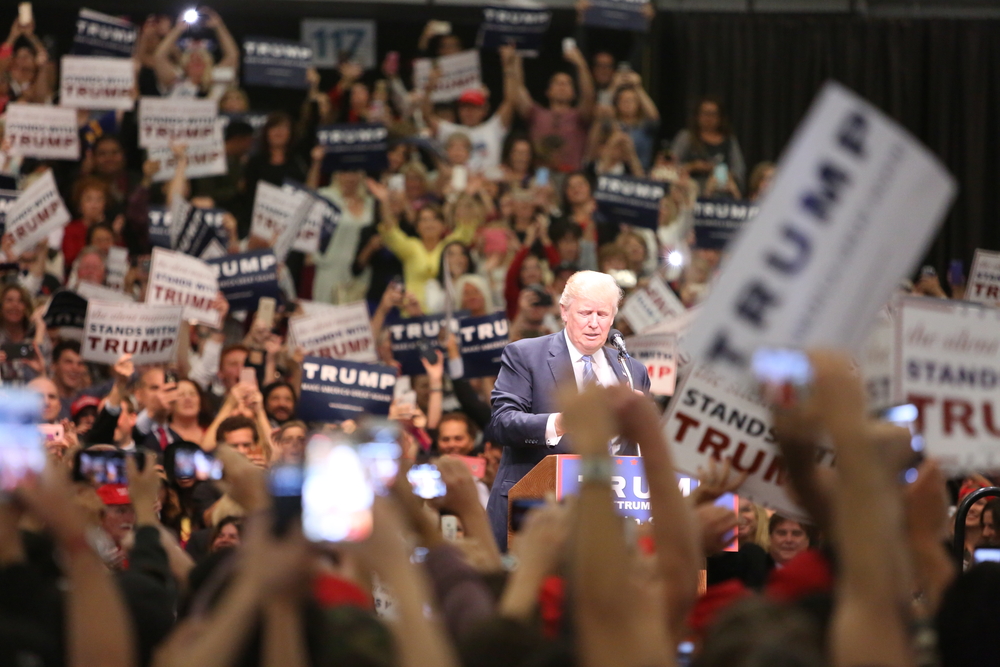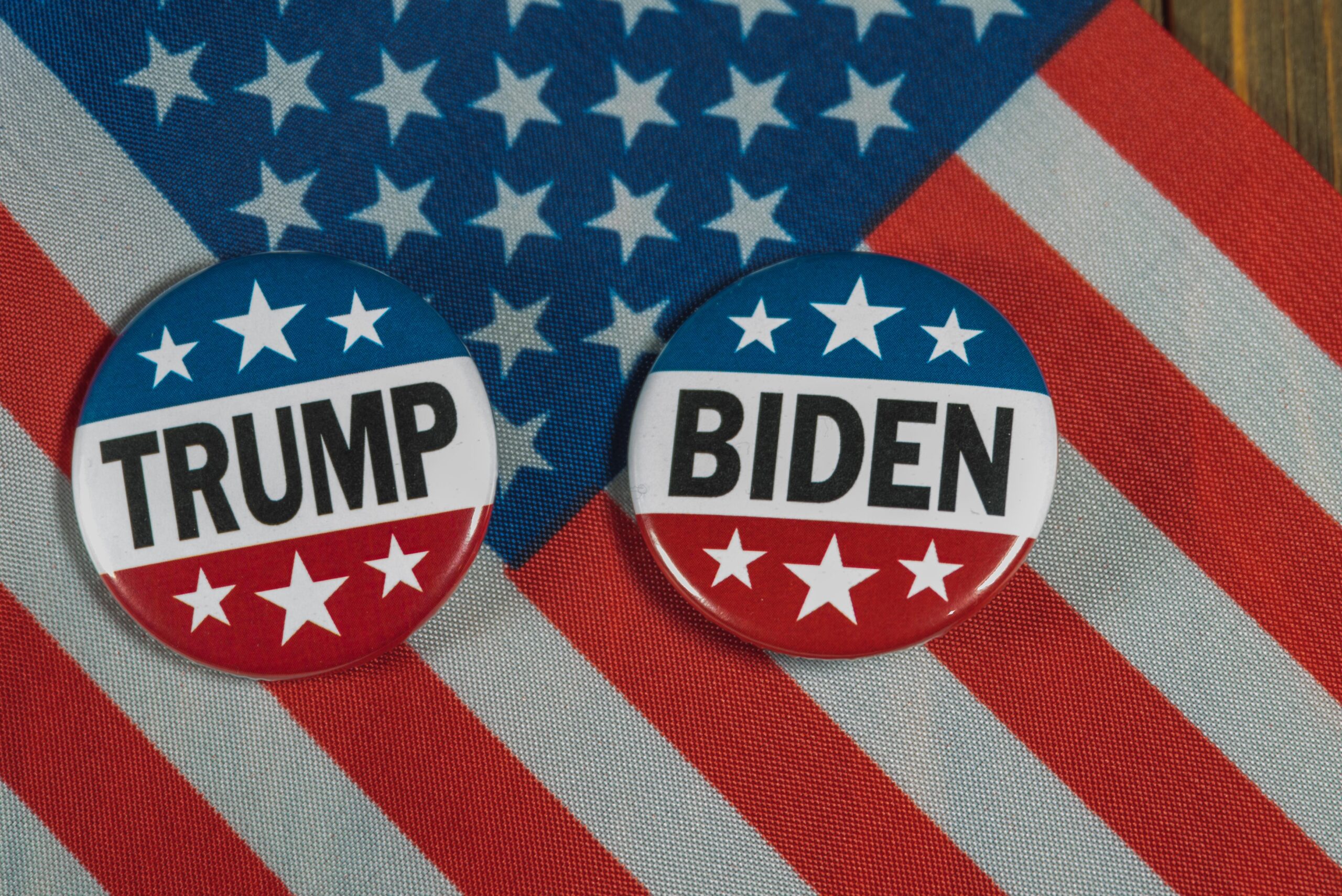
Earlier in the week I asked my Twitter followers what we should ask the voters who helped send Donald Trump to the White House. Many of the answers were along the lines of, “do you regret it yet?” Judging from my focus groups in Macomb County, Michigan – which backed Obama in 2012 but last year swung behind the Republican, helping him to win the state by just 0.3 per cent – the answer is a resounding “no”.
“He certainly is going down his list of promises and checking them off one by one,” one Trump voter told us. “He made promises and he’s going right at it right now.” No-one was surprised that he had taken his unorthodox style from the campaign to the presidency (which can’t make life easy for the press secretary, Sean Spicer: “he’s got some cojones too!”) – but if that sometimes made them uneasy, most accepted it as part of the package: “I think because he’s in office, that’s what you’re gonna get. Do I want that? No. Do I want the change? Yes.”
“He said he was going to take control of the borders, and he’s doing it.”
Even those who had voted only reluctantly for President Trump backed him on last weekend’s Executive Order restricting travel from seven largely Muslim countries into the United States. “He said that when he got into office he was going to take control of the borders, and he’s doing it;” “I didn’t think it went far enough because there’s a few countries that aren’t on the list.” The fact that the president had persisted in the face of protests was “good, because it shows he’s not worried about public opinion.” Some were puzzled by the response: “it’s happened before in 2011, and nobody seemed to notice when Obama did it.”
The kind of people who were protesting “were gonna stomp their feet no matter what he does. He could hand them a thousand dollars and they’d still find something to bitch about.” As for the president’s celebrity critics: “They live these sheltered little lives, where they live in gated communities, they really don’t live in the real world… I’m tired of hearing what Hollywood has to say and what we should be thinking. And that’s another reason I liked Trump, because he just tore Hollywood a new one.”
Nor were they fazed by international condemnation of the president, or the travel ban. Indeed, for them, the new administration’s refusal to “kowtow” to foreign opinion was another welcome change from what they felt had been the tone of the last eight years: “I feel like Obama apologised, and now Trump’s saying ‘I’m not apologising for our country… So as far as what the other countries think of us, I think we shouldn’t care.”
“He could hand them a thousand dollars and they’d still find something to bitch about.”
If, in their view, President Trump had made a flying start, this only served to heighten their expectations of what he could do in the next four years. What did they expect him to improve? “All of it. Taxes, education, economy… Nobody I know is happy with the way their life is right now. You’re either paying too much for your medical, you’re paying too much in your income taxes – it needs to be fixed and he’s going to do it. I got big hopes for that man.” Reforming Obamacare, cutting taxes, bringing down the debt, strengthening the military, reforming Washington, tightening the border, bringing back jobs – was this asking a bit much, given their usual experience of political promises? “I do think he has a better chance of success, if only because the career politicians don’t know what he’s going to do next. It seems like he doesn’t let dust settle.” To judge by his business career, “he’s going to figure out how to wheel and deal, he’s going to get through the red tape, he’s going to figure it out, and he’s not going to be talking, he’s going to get it done.” Not only that, “he has a Republican Congress, so I would say he has optimum conditions to get things done.”
For Saul Anuzis, a former chairman of the Republican Party in Michigan, these expectations are well founded. “The Executive Orders he has taken, the fact that he has met with large business leaders from around the country and gotten commitments from them to build and expand their plants here in the United States, as well as the Dow hitting twenty thousand for the first time, all of these point to a certain degree of leadership and optimism that a Donald Trump presidency brings to this country. Now the real question is, can he get the legislation passed that will provide for a sustained type of change with regard to the business climate, taxation, regulation in this country. If he is able to do that, I think that the number one issue for most Americans is going to be jobs, to see whether or not he actually can create and bring back good-paying middle-class jobs.”
But did senior Republicans ever worry about the president’s alleged use of what have come to be known as “alternative facts”? “Both the American people and the international community is going to have to factor in the fact that Donald Trump is different than any other traditional politician. He is not a slick-speaking, calculating political figure. He is going to speak from the heart, tell you what he thinks, and then step back and say, all right, how does this fit what I believe? And he will make mistakes, I think he’s going to have to be more careful, he’s going to be flippant with regard to what he believes, but the reality is, it’s not going to necessarily have a determinative effect in the process. I have had a chance to speak with a number of foreign leaders from around the world since President Trump has been elected, and I’ve made a very straightforward case that his actions are going to speak louder than his words. Be careful not to over-react to statements that may be off the cuff.” Once we all get used to the idea that he has to be “viewed and analysed a little differently from others, I think you’re going to see a much more normal reaction to what he says.”
“People weren’t listening… They don’t know any better.”
On the other side of the aisle, some of those who had voted for Hillary Clinton said they understood why others had not made the same choice. “If I were in rural America at the moment, all the industry has been wiped out from overseas competition, I have zero economic options… you bet I’d be pissed. So for that reason, that message of ‘Make America Great Again’ and bringing back that economic vitality that we’ve lost in the rural part of the country in the last thirty years really resonated.” Committed Democrats, though, were at least as likely to be disappointed in their fellow electors. For a few, the Trump campaign had had racist undertones (“not everyone who voted for him was a racist. But I believe that the majority of the racists voted for him”), and misogyny had played a part (“the bottom line is, I just think they didn’t want a woman for president”). For most, the problem was that “people weren’t listening,” or failed to educate themselves to vote in their own best interests. “I think it was for two reasons: ‘Let’s Make America Great Again’, and they don’t know better.”
I asked Jennifer Granholm, the popular former Democrat Governor of Michigan, whether there was a danger of her party taking refuge in explanations like this, rather than thinking harder about why it lost. “Democrats have to look really hard at what we were saying. If we weren’t talking about jobs, jobs, good paying jobs in America, and having that be the front and centre of our campaign, then we were missing the boat. Donald Trump understood that people were feeling enormously insecure, based on the fact that they had lost their jobs through no fault of their own and were now struggling holding down two or three jobs and pulling down still less wages. People need to get how serious, what an identity crisis that is. And that a guy who was outsourcing himself, who every time you see him interviewed at home is in a Louis XIV chair with gilded columns and mirrors around him – that that guy could have made the point greater than we made – that’s certainly a lesson for Democrats.”
Should Democrats declare all-out opposition to the Trump administration, or was there any scope to work together? “We are speaking on the day Donald Trump announced that he wants to see US-made content in all of the infrastructure projects that his administration will put forward. Great! Let’s do it… Let’s hold his feet to the fire and let’s push him on it, and let’s remind our base that we are the ones who are pushing. And we have to call him out on hypocrisy if he’s not doing that.”
On other questions, was there a danger of the president’s opponents overreacting to his deeds and reinforcing his support among the people who turned out for him in November? “I think this is a really smart question and Democrats have to look to this. But I also want to say that we don’t want to normalise behaviour that really is damaging. For example, this ban on people coming from the seven largely Muslim countries.” People should ask, “what is really going on underneath this? Is it not just a political measure, rather than one that is really directed toward protecting Americans? We don’t want to normalise behaviour that denigrates American values. We don’t want to say, ‘that’s OK’.”


